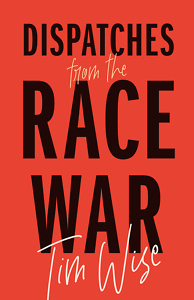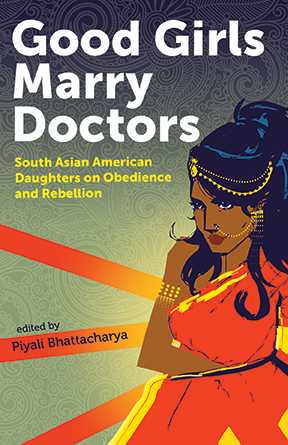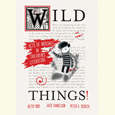White Fight
Dispatches from the Race War exhorts white Americans to join the struggle for a fairer society.
In the introduction to Tim Wise’s Dispatches from the Race War, the author recalls a question his Great-Aunt Jean put to him at a family reunion in 1994: “Do you think we’re ever going to have a race war?” The question wasn’t totally out of the blue. Wise was then a 25-year-old antiracism activist who’d launched an anti-apartheid campaign as a Tulane undergraduate. His answer — that such a war had been raging since 1619 — prompted his aunt’s silent retreat.
 That anecdote epitomizes the fraught debates likely to flare up at holiday tables and Zoom gatherings throughout our divided country in the wake of a bitterly contested election. It sets the stage for Wise’s collection of essays about those divisions — and the American affliction of white supremacy at their core — and asks readers to play an active role in a cure. “The only thing standing in our way is a willingness to look in the mirror,” he writes, “our own and the mirror of the nation — and the courage to be honest about the reflection staring back at us.”
That anecdote epitomizes the fraught debates likely to flare up at holiday tables and Zoom gatherings throughout our divided country in the wake of a bitterly contested election. It sets the stage for Wise’s collection of essays about those divisions — and the American affliction of white supremacy at their core — and asks readers to play an active role in a cure. “The only thing standing in our way is a willingness to look in the mirror,” he writes, “our own and the mirror of the nation — and the courage to be honest about the reflection staring back at us.”
These essays, written over the past 12 years, are organized into sections about the Obama and Trump presidencies, the pandemic and protest movement of summer 2020, competing ideological narratives about American history and institutional racism, and practical strategies for aspiring antiracist advocates. Wise, a fiercely dedicated advocate for social justice, is not likely to persuade anyone who owns MAGA paraphernalia. His mission is to share what he’s learned about the art of persuasion with progressive readers who “already have a commitment to racial justice and equity but perhaps find themselves less confident than they should be about the positions they hold.”
He outlines and dismantles common conservative tropes, such as the “he was no angel” rhetoric that inevitably emerges after police shootings of unarmed Black people and the where-do-we-stop argument about monuments commemorating complicated men. On the legacies of two such men, Thomas Jefferson and Robert E. Lee, Wise makes this distinction: “Whether Jefferson intended it or not, he gave us a blueprint, however blood-spattered, for building a functioning democracy. Lee and his cohorts had no interest in such things, nor the vision to even imagine them.”
 Wise, a Nashville native, is at his best when he’s inviting readers to exit the realm of abstract intellectualizing and envision lived Black experience at an emotional, human level. One might wonder why a white activist is needed for this task — one that Wise has taken upon himself to perform for nearly 30 years now — when so many excellent firsthand accounts already exist, from recent works by Ibram X. Kendi and Ijeoma Oluo, reaching back to Zora Neale Hurston, Langston Hughes, and W.E.B. DuBois. Wise’s answer, in an essay about building solidarity, is essentially this: If we white Americans let our fellow Black citizens do all the education work, we sidestep our responsibility to actively take part. He also points out that some white people simply do not believe Black people’s testimony about the racism they experience. For these unbelievers, he says, white allies can act as a bridge: “Using our voice with other white folks smooths the path for them to begin listening to people of color with new ears.”
Wise, a Nashville native, is at his best when he’s inviting readers to exit the realm of abstract intellectualizing and envision lived Black experience at an emotional, human level. One might wonder why a white activist is needed for this task — one that Wise has taken upon himself to perform for nearly 30 years now — when so many excellent firsthand accounts already exist, from recent works by Ibram X. Kendi and Ijeoma Oluo, reaching back to Zora Neale Hurston, Langston Hughes, and W.E.B. DuBois. Wise’s answer, in an essay about building solidarity, is essentially this: If we white Americans let our fellow Black citizens do all the education work, we sidestep our responsibility to actively take part. He also points out that some white people simply do not believe Black people’s testimony about the racism they experience. For these unbelievers, he says, white allies can act as a bridge: “Using our voice with other white folks smooths the path for them to begin listening to people of color with new ears.”
Maybe that’s where Wise fits into the wider world of antiracist education — as a sort of personal trainer for people just beginning to walk the antiracist path: Here are the tropes and whatabouts your own Aunt Jean is likely to float at Thanksgiving, and here are some strategies for addressing them. He arms you with facts and historical context plus vocabulary and common fallacies, along with a logical process that any reasonable person could concede has merit. Most of all, he advises you to listen to Aunt Jean’s testimony too. “If I am willing to take your pain seriously,” he writes, “you will be far more likely to return the favor when I ask you to acknowledge the suffering of others.”
In other words, his aim isn’t to replace Oluo or DuBois but to provide an entry-level compendium of what you’ll need to know, from Confederate ideology and the Founding Fathers’ Faustian compromises to scholarship on structural racism in the justice system. For me, the fact that Wise frequently cites Black authors (and is endorsed by some of them) bolsters his credibility, as do his decades in the antiracist education trenches.
Wise invokes James Baldwin in the final pages, urging antiracist recruits and veterans alike not to expect victory but to “earn our deaths” (as Baldwin wrote) by finding meaning in the struggle itself. “And if we are to lose,” Wise writes, “let it at least be said that we did not go quietly.”

Kim Green is a Nashville writer and public radio producer, a licensed pilot and flight instructor, and the editor of PursuitMag, a magazine for private investigators.


